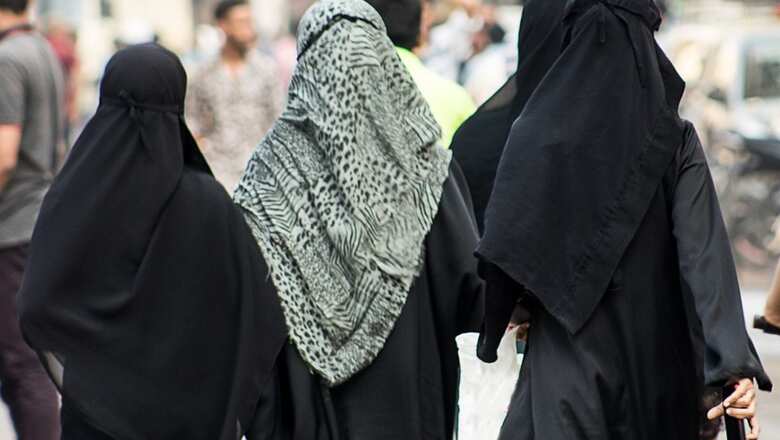
views
Every view has a counter, every opinion can be different, and at News18, we value each one of them. To present these views and opinions to you – the reader – is not just a job, but also our duty.
News18 kicks off a new series, Sticking Point, which will have prominent opinion makers from across India and the world face off on varied topics through their written words. Sticking Point will be the voice of diverse authors, as they debate on a particular subject of national and international importance, and more importantly, one that enlightens our reader.
In the wake of the recent announcement by the government that the Law Commission will hold fresh consultations on the Uniform Civil Code (UCC), Muslim organisations have taken a prominent role in expressing their opposition to the implementation of such a code. To my surprise, news channels and the non-Muslim community are adhering to the instructions outlined in the Quran (03/159), which emphasise gentle consultation for decision-making. On the other hand, the AIMPLB (All India Muslim Personal Law Board), despite being a Muslim organisation, seems reluctant to participate in surveys that would accurately represent the views of the Muslim community in India regarding the UCC. Amidst the ongoing disputation over UCC, News18 has conducted a remarkable survey that involved 884 reporters interviewing 8,035 Muslim women across 25 states and Union Territories in the country.
The survey by News18 was not a social media poll, but rather every participant was personally reached out to by the reporters for an interview on this subject. The respondents encompassed a diverse cross-section of female Muslim citizens from various demographics in India. The survey participants ranged from women aged 18 and above to those in the 65+ category. There has been broad representation across the educational spectrum, ranging from individuals with no formal education to post-graduates.
To ensure the anonymity of respondents, it was optional for survey participants to reveal their names. However, despite this option, a significant 90 percent of respondents chose to provide their names.
Key Findings of the Survey
The News18 UCC Survey reveals a significant level of support among Muslim women for the key provisions that experts believe will constitute the major principles of any Uniform Civil Code.
While there is slightly higher support for the provisions of the UCC among highly educated Muslim women (Graduate+), the overall level of support remains very high across the surveyed population.
- Support for a common law: According to the survey, 67 percent of all Muslim women surveyed expressed agreement with the idea of having a common law for all Indians regarding personal matters such as marriage, divorce, adoption, and inheritance. Among respondents with a graduate-level education or higher, the percentage was slightly higher at 68 percent.
- Opposition to polygamy: The survey indicates that 76 percent of all Muslim women surveyed (with 79 percent among those with a graduate-level education or higher) disagreed with polygamy and expressed the view that Muslim men should not have the right to marry four women.
- Equal rights of succession and inheritance: The survey does highlight the highest level of support from women on the question of equal rights of succession and inheritance of property, regardless of gender. Overall, 82 percent of all Muslim women surveyed expressed support for this notion, with 86 percent among those with a graduate-level education or higher.
- Freedom to remarry after divorce: 74 percent of all respondents agreed that divorced couples should be allowed to remarry without any restrictions.
- Adoption across religions: While there was generally high agreement on the question of adoption, the percentage of Muslim women agreeing that adoption should be allowed regardless of religion was relatively lower compared to the other questions asked in the survey. Overall, 65 percent of all respondents expressed agreement on this matter, with 69 percent among those with a graduate-level education or higher.
- Freedom to will away property: 69 percent of all respondents (with 73 percent among those with a graduate-level education or higher) agreed that all Indians who have reached the age of majority should have the freedom to will away their property as they desire.
- Minimum age for marriage: The survey reveals a strong level of support for raising the minimum age for marriage for both men and women to 21. Among all Muslim women surveyed, 79 percent expressed support for this increase, with 82 percent among those with a graduate-level education or higher in agreement.These key findings suggest that there is considerable support among Muslim women for the principles associated with the Uniform Civil Code, such as common laws, gender equality, and individual freedoms.
The survey has served as fulfilment of the expectations held by Muslim women in India. It has demonstrated a substantial number of Muslim women expressing support for civil laws that can be associated with the Uniform Civil Code. Due to a growing number of Muslim women refusing to accept the interpretation of the Sharia law that they perceive as designed to subjugate their status, the AIMPLB may be hesitant to conduct any survey involving them.
The fear may arise from the possibility that such a study could expose a false narrative of widespread support from the majority of Muslim women, contradicting their actual perspectives.
On social media networks, many Muslim women are openly expressing support for the UCC and urging the government to implement civil laws that treat all Indian citizens equally. It is noteworthy that not only Muslim women but also many Muslim men are advocating for the implementation of the UCC. They recognise that such a code promotes national integrity and unity by ensuring that all citizens are governed by the same set of laws.
Indeed, the broader support expressed by Muslim women in the survey reflects a strong desire for an inclusive and equitable legal framework that goes beyond religious boundaries. This support signifies a collective aspiration for a system that upholds principles of fairness, equality, and unity among all citizens, regardless of their religious background. It demonstrates a recognition that a more inclusive legal framework can contribute to a society where everyone is treated equally under the law, fostering a sense of unity and harmony.
The author is a nationalist Indian Muslim, a student of Philosophy and a researcher in the Quran and Islamic theology, having in-depth knowledge in Islam. Views expressed in the above piece are personal and solely that of the author. They do not necessarily reflect News18’s views.



















Comments
0 comment